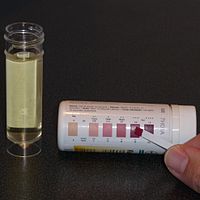
Electroacupuncture ameliorates poloxamer 407‐induced hyperlipidemia through suppressing hepatic SREBP‐2 expression in rats
Sign Up to like & getrecommendations! Published in 2018 at "Life Sciences"
DOI: 10.1016/j.lfs.2018.04.016
Abstract: Aims: Acupuncture, particularly electroacupuncture (EA) has been shown to have the lipid‐lowering effects, but not completely investigated. The present study was aimed to examine whether EA could attenuate poloxamer‐407 (P‐407)‐induced hyperlipidemia in the rats and… read more here.
Keywords: srebp; 407 induced; expression; poloxamer 407 ... See more keywords

[Immunological markers of alimentary-induced hyperlipidemia in Wistar rats].
Sign Up to like & getrecommendations! Published in 2019 at "Voprosy pitaniia"
DOI: 10.24411/0042-8833-2019-10028
Abstract: Changes in plasma levels of the main groups of cytokines and adipokines may correlate with the severity of metabolic disorders in hyperlipidemia and obesity. The aim of the study was to assess the significance of… read more here.
Keywords: group; ratio; group diet; induced hyperlipidemia ... See more keywords

Effect of Fenugreek Seeds Powder (Trigonella foenum-graecum L.) on Experimental Induced Hyperlipidemia in Rabbits
Sign Up to like & getrecommendations! Published in 2017 at "Journal of Dietary Supplements"
DOI: 10.3109/19390211.2016.1168905
Abstract: ABSTRACT In the present experimental study, the effect of Trigonella foenum-graecum L. (TFG) seeds powder on experimentally induced hyperlipidemia in rabbits was investigated. Twenty albino rabbits were randomly, equally divided into two groups and fed… read more here.
Keywords: foenum graecum; seeds powder; trigonella foenum; cholesterol ... See more keywords

Ascophyllum nodosum and Fucus vesiculosus Extracts Improved Lipid Metabolism and Inflammation in High-Energy Diet–Induced Hyperlipidemia Rats
Sign Up to like & getrecommendations! Published in 2022 at "Nutrients"
DOI: 10.3390/nu14214665
Abstract: Ascophyllum nodosum and Fucus vesiculosus both contain unique polyphenols called phlorotannins. Phlorotannins reportedly possess various pharmacological activities. A previous study reported that the activity of phlorotannin is strongly correlated with the normalization of metabolic function,… read more here.
Keywords: ascophyllum nodosum; vesiculosus; induced hyperlipidemia; nodosum fucus ... See more keywords